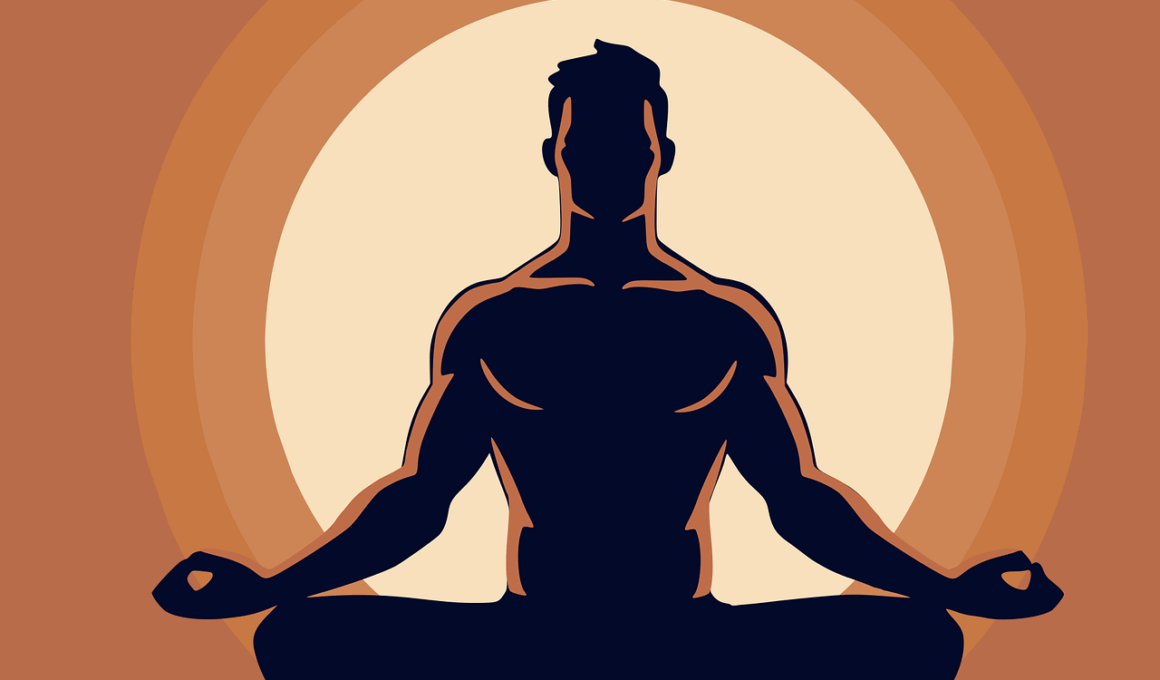Mindful Meditation for Stress Reduction and Focus Enhancement
Meditation is a powerful practice that can greatly enhance your focus while effectively reducing stress. When practiced regularly, it cultivates mindfulness, which is the art of being present in the moment. This mental state can help diminish distractions that amplify stress levels. During mindfulness meditation, individuals pay attention to their breath or a particular thought pattern, allowing their unconscious mind to settle. By focusing on the present, you allow your thoughts to become clearer and more organized. This clarity not only eases anxiety but also improves one’s ability to concentrate on tasks. In our fast-paced lives, it is easy to become overwhelmed by competing demands. A regular meditation practice encourages you to create a contemplative space where you can reboot your mental faculties. Research shows that even brief sessions of meditation can result in improved attention spans and increased productivity. The key is consistency. Therefore, aim for a few quiet minutes daily to connect with your breath and harness the benefits of mindful meditation, which will enhance not just your focus but also your emotional well-being. These insights provide only a glimpse into the immense benefits of meditation practices.
Numerous studies have demonstrated that mindfulness meditation can have profound effects on the brain, particularly in areas responsible for attention control and emotional regulation. Consistent practice results in gray matter alterations within the brain, predominantly in the prefrontal cortex, which enhances learning and decision-making. Additionally, neural connections related to stress responses may weaken over time, allowing practitioners to handle stressful situations with greater ease. Recognizing emotions without attachment can create a balance, enabling better responses instead of reactions. Meditation allows a moment of pause, providing clarity during periods of heightened stress. Much like physical workouts foster physical health, meditation nurtures mental prowess, effectively making the mind sharper and more resilient against distractions. To start, choose a peaceful environment, close your eyes, and focus on deep, even breaths. As thoughts arise, acknowledge them without judgment and return to your breath. This may seem simple, but it’s a remarkable technique that encourages sustained focus. With determination, individuals soon discover that not only does their creativity flourish, but their capacity for absorbing complex information expands. Just remember that the journey of meditation involves patience, so allow yourself to explore this enriching practice.
Steps for Effective Mindful Meditation Practice
Establishing a successful delightful meditation session involves several critical steps that can enhance the overall experience. First, find a quiet and comfortable space where you feel secure. This area should be free from distractions and interruptions to enable you to focus solely on your meditation practice. Next, choose a time of day that aligns with your schedule and energy levels. For many, mornings provide a fresh start, while others may find evenings more conducive to reflection. As you begin, position your body comfortably, either sitting cross-legged or in a chair with an upright back. Your posture should embody alertness and relaxation simultaneously. Start by focusing on your breath, inhaling deeply through your nose and exhaling slowly through your mouth. This rhythmic pattern helps anchor your attention. If your mind begins to wander, gently redirect it back to your breath without judgment. Perhaps incorporate visualization techniques and imagine calming scenery, further enhancing focus. Practicing these steps consistently will gradually strengthen your mindfulness abilities and provide deeper states of relaxation. As you integrate these techniques into your daily routine, the benefits of meditation will undoubtedly commence manifesting in various aspects of your life.
Joining a meditation group can significantly deepen your experience, providing accountability and community support. Many find comfort in practicing alongside others, sharing insights and experiences. Such communities foster connections, and participants can motivate one another to remain consistent in their practice. There are various forms of group meditation, ranging from guided sessions with experienced instructors to silent meditations where participants focus inwardly together. Utilizing a qualified instructor can enhance your understanding of mindfulness and present various techniques suited for different needs. Furthermore, listening to recorded guided meditations can ease beginners into the process and provide support during solitary sessions. Choosing a group that resonates with you can enhance the focused energy and atmosphere during meditation. This collective focus amplifies the mindfulness experience, often yielding faster results and deeper understanding. Online resources offer countless options for joining virtual meditation classes, allowing ease of access for everyone. Explore the choices available in your locality and online, recognizing the value of connecting with fellow practitioners. Over time, you’ll discover that sharing experiences enriches your practice, resulting in a plethora of new insights that can further your mindfulness journey.
The Role of Breath in Meditation
The role of breath in meditation is paramount and acts as a bridge between the body and mind. Breath serves as an anchor for concentration, allowing practitioners to focus their awareness effectively. Notably, controlling your breath can evoke feelings of calmness. By cultivating deeper breaths, the body signals relaxation, and the mind can navigate away from racing thoughts and stressors. In seated positions, or even standing during specific techniques, focusing on the breath heightens self-awareness. When inhaling deeply, envision drawing in positivity while exhaling toxins and negativity. This visualization reinforces the connection between breath and emotional state, empowering individuals to regulate their thoughts and feelings. Consistent practice of breath-focused exercises nurtures a responsive relationship with stress. Such exercises have led many individuals to breakthrough moments of clarity during mediation. By engaging deeply with this knowledge, one may also find natural methods to induce relaxation amid daily challenges. Learning to master breath control through meditation opens the door to deeper states of focus and presence. Embracing your breath as a tool will allow you to thrive in the storm of distractions that often permeate modern life.
Incorporating mindful meditation into daily routines not only promotes physical relaxation but also enhances cognitive functioning. Individuals practicing mindfulness regularly report an increase in creative thinking alongside improved problem-solving abilities. Neuroplasticity—the brain’s capacity to reorganize itself—is greatly enhanced by meditation, leading to more effective learning and memory retention. By retraining the mind to remain centered, stress levels decrease, thereby reducing the impact of distractions. Additionally, practicing mindfulness alleviates issues like insomnia or anxiety, leading to more restful nights. During daily activities, taking mini-breaks to practice mindfulness can also yield impressive results, even amidst a busy schedule. For instance, during mundane moments like waiting in line or commuting, breathe deeply and center your thoughts. Allow yourself to temporarily disengage from the world, enhancing your productivity and overall well-being. Mindfulness doesn’t demand lengthy time commitments; short, intentional moments can collectively lead to transformational changes in your focus. Identifying moments in your routine is a powerful way to embed mindfulness seamlessly. Therefore, make a commitment to practice daily awareness, as it empowers a lasting shift, enabling you to harness restful states of mind.
Final Thoughts on Mindful Meditation
Lastly, mindful meditation is an invaluable tool that enhances focus and reduces stress across all aspects of life. The practice encourages individuals to engage wholly in the present moment, fostering resilience against the pressures of modern living. Community involvement strengthens motivation and commitment, creating a supportive network for dedicated practice. Remember that every meditation journey is unique; therefore, embrace the process without judgment or expectations. The objectives of mindful meditation transcend mere stress reduction, leading practitioners toward a holistic transformation of body and mind. Key principles to carry forward include patience, dedication, and an open heart. As you immerse yourself in this practice, be open to the subtle shifts in your emotional state and cognitive ability. The rewards of consistent, mindful meditation can lead to a more satisfying and focused life. Encourage those around you to explore this enriching method—sharing experiences can yield mutual growth. Allow your journey to unfold naturally, and stay committed to building a mindful and centered existence. With these insights, you are prepared to embark on a rewarding journey into the depths of mindfulness through meditation.
Let’s embrace meditation together and truly experience growth in focus and emotional stability!


